
<< · I · II · III · IV · V · VI · VII · VIII · IX · X · XI · XII · XIII · XIV · XV · XVI · XVII · XVIII · XIX · XX · XXI
7th Transatlantic Students Symposium
The End of the West and the East?
Challenges for Integration in Europe and the United States in the 21st Century
Humboldt-Universität zu Berlin and Georgetown University.
Berlin/Cyprus, March 7-15, 2009


Program Description
The division of the world into East and West appears as old as history. Even though the protagonists in occident and orient have changed frequently, the terms still exist, and are supposed to carry meaning. What is meant, however, is often a West that is seen as identical with the "Free World" (Ash 2004) and an East that is simply a drastic case of alterity. Yet, especially India and to a lesser extent China have been working towards "provincializing Europe" (Chakrabarty 2000). The much-hyped "clash of civilizations" (Huntington 1996) is becoming a conflict that happens much more inside of nation states rather than between them (Huntington 2004). Consequently, the question of national identity is increasingly becoming more complex, especially when new immigration poses questions regarding the "rights of others" (Benhabib 2004).
Regarding the "End of History" (Fukuyama 1992), i.e. the teleology of History as a guiding force in a Hegelian and Marxian sense, liberal democracies in the world are increasingly challenged in their normativity. It is not just the confrontation with radical Islamism, but also with radical and ruthless capitalism - especially in China - that poses challenges for the social welfare state that is prevalent (to varying degrees) in the West. A crumbling economy oftentimes goes hand-in-hand with a heightened threat to social peace. Moreover, one of the major on-going challenges is continued immigration from the "Global South" and the "East" into the "West," and the ensuing battles over identity, participation, distribution of riches and traditional value systems. In addition to the "trouble with diversity" (Michaels 2006), a rising disparity between the rich and the poor within the "West" itself questions the promise of everlasting prosperity, especially in the light of the current financial crisis in both America and Europe.
The European Union is a diverse confederation of states with strong national identities - while non-state nations (such as the Scots and Basques) within the EU continue to struggle for a meaningful role within the growing European realm of influence. The United States of America has upheld its self-image of a traditional immigrant nation - while still marginalizing Native Americans and African Americans in a peculiar way.
Both of these "Western" societies are now increasingly challenged in their self-definition by new kinds of immigrants that seeks not assimilation or arrival in a target country, but rather continuing ties to their home and the preservation of their original culture. Such transmigration is a phenomenon of globalization: a subaltern cosmopolitanism that can see a family identifying with several countries without really appearing tied to either one; a border-transcending movement that is increasingly facing a toughening of borders and limits. How global can the local be; and how local can the global be?
With the emergence of new socio-economic and cultural constellations resulting from processes of globalization on the one hand and regionalization and localization on the other, traditional notions of the "West" and "East" are being increasingly rendered problematic if not invalid. Whereas in Europe, religion (most prominently, Islam) has played a significant role in re-thinking the idea of the "West," in the United States the controversies related to recent Latin American immigration has elevated the issue of integration back to the political agenda, as well as spurring a renewed interest in the inquiry of concepts of integration and the cultural premises upon which they are based.
The symposium will delve into questions of inclusion and exclusion, of defining and re-defining cultures, and at how these issues are negotiated at a political and economic as well as on a cultural level. From the backdrop of recent debates about the politics and practice of integrating immigrants and minorities in the United States and Europe, we will address key dimensions of contemporary social and cultural contexts on both sides of the Atlantic that challenge present concepts of (national) integration. Besides discussing relevant theories of integration and their critiques, we will also provide insights into practical aspects of current integration policies in the US and Europe.
The symposium will bring together a group of selected German students with American students for a joint field trip in Europe, and an academic symposium at Humboldt University in March 2009.
Symposium Week Field Trips
Cyprus: Larnaca; Pyla; Kykkos Monastery; Omodhos; Episkopi; Kourion; Petra Tou Rhomiou; Choirokoitia; Lefkosia/Lefkosa, Lefkosia University; Berlin: Czech Embassy; US Cultural Attaché; Böll-Foundation; Bundestag
Workshops: at Lefkosia University, CyprusSite Visits: Larnaca; Pyla; Kykkos Monastery; Omodhos; Episkopi; Kourion; Petra Tou Rhomiou; Choirokoitia; Lefkosia/Lefkosa
Institutional Visits: Berlin: Czech Embassy; US Cultural Attaché; Böll-Foundation; Bundestag
Total participants: 19
Organizers
Philipp Kneis, PD Dr. Reinhard Isensee (Humboldt),
Dr. Eric Langenbacher, Marie Gschwindt de Gyor (Georgetown)
Student Organizers
Elle Narayan, Sebastian Schöbel, Anja Swidsinski (Humboldt)
Student Participants (not organizers)
12 (Humboldt: 6, Georgetown: 6)
Conference Program
Symposium Week Program
Conference Program Flyer
Partners and Supporters
Humboldt-Universität zu Berlin: International Office,
Humboldt-Universität, Philosophical Faculty II,
American Studies Program,
Humboldt-Universität, Students Union English and American Studies
Georgetown University:
BMW Center for German and European Studies,
Department of Government
Holiday Land Richter Reisen, Berlin
see also: Latest Program Report
back to: Symposia
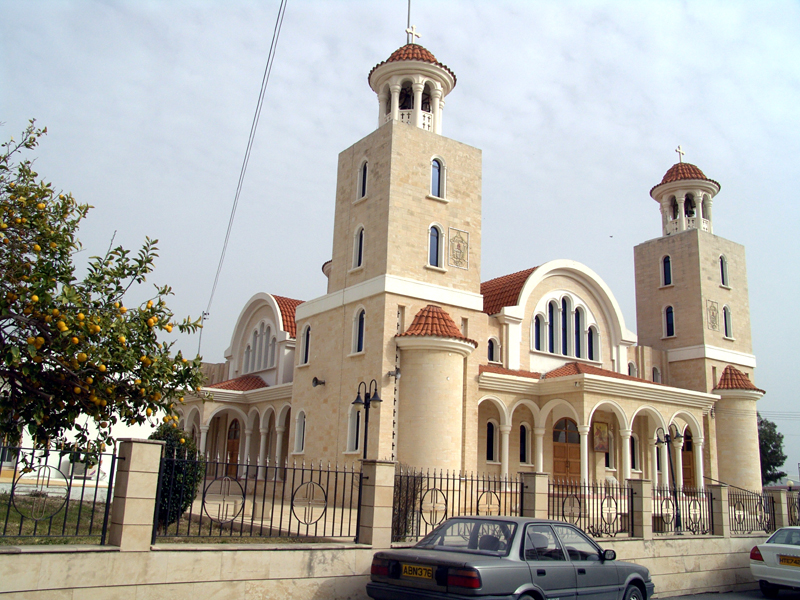
Pyla
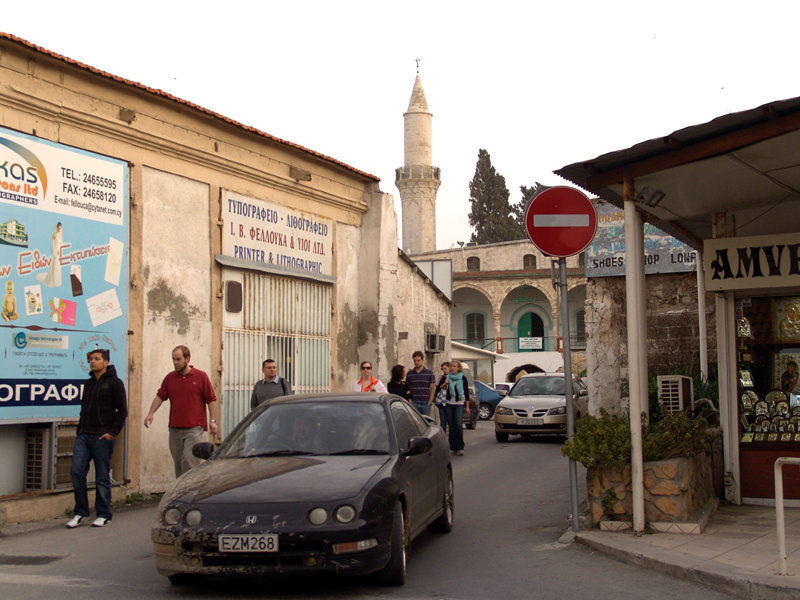
Pyla
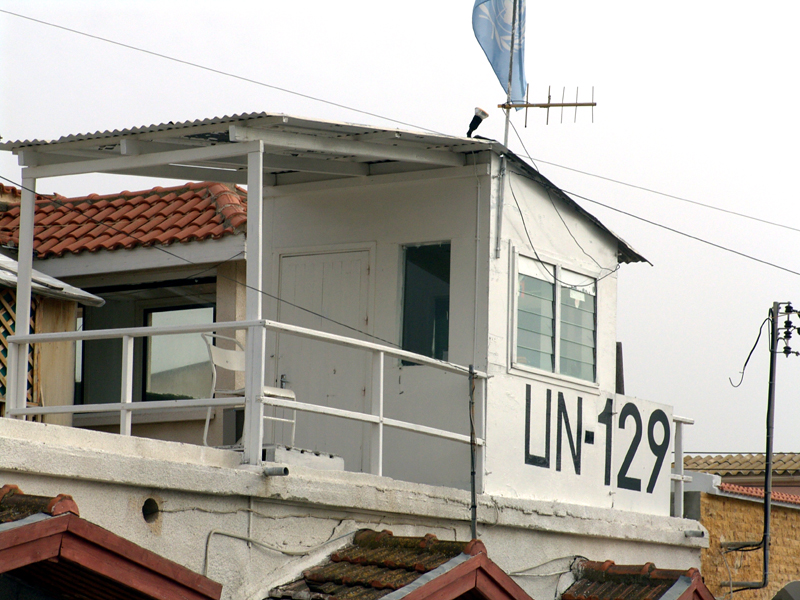
Pyla
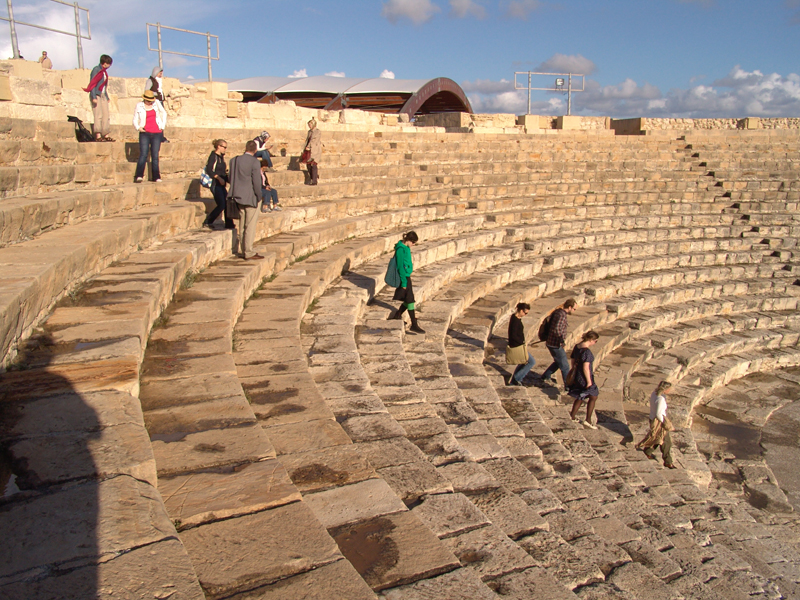
Episkopi
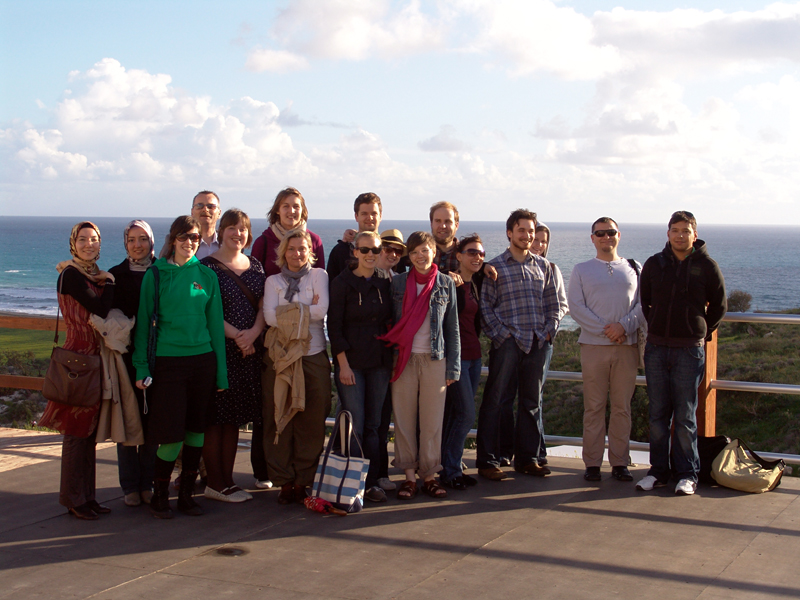
The Symposium Group in Cyprus
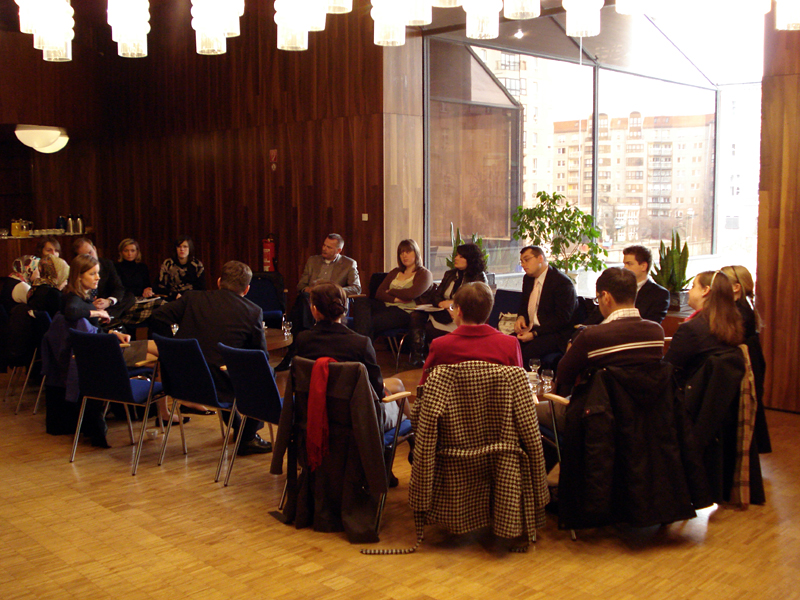
Meeting in the Czech Embassy in Berlin